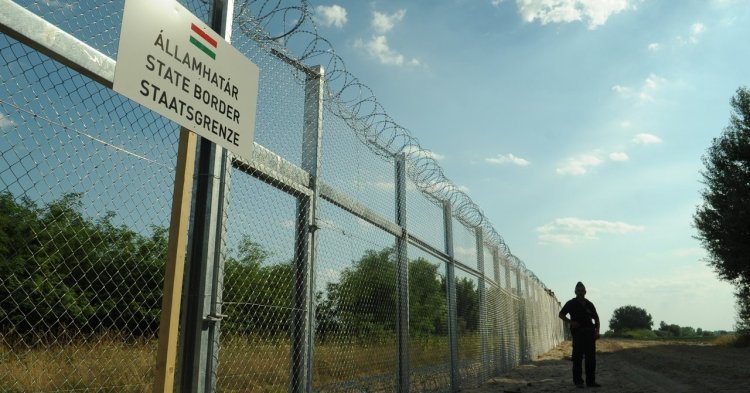Since 2015, Hungary refuses to take in refugees in the name of democracy. Some European leaders argued Hungary should take them in… in the name of democracy. Hungarian leaders claimed the Hungarians didn’t support the intake. And the European leaders argued the intake was voted for in the European Union. So what happened?
EU countries voted to redistribute asylum seekers at the end of 2015. It was one of those rare cases where not all EU countries agreed. But they could -and did- vote with an extended majority. Hungary voted against the plan. But it also agreed a few years earlier that asylum issues could be decided with this extended majority. So why would Hungarian leaders still protest the EU’s decision? Because many in the EU view democracy in a different way.
Liberal and illiberal democracy
What is democracy? Many libraries are filled with attempts to describe it. In this case, the conflict is rising between those defending a so-called liberal democracy and those opposing it. The crucial question in this conflict: how powerful can politicians be, compared to other persons and organisations outside of Parliament?
Politicians defending the liberal democracy believe those persons and organisations should be as strong and well-organised as possible. Examples: a free press, independent judges and universities, strong companies and free non-governmental organisations (NGOs) like charities. Since politicians regularly change, it’s a healthy reflection to wonder if those organisations and people aren’t becoming too powerful. Possibly resulting in political immobilism: not enough power left for politicians to make a difference. Politicians should make the rules.
Politicians opposing liberal democracy believe certain non-Parliamentary organisations and persons should be weak, loyal and disorganised. Judges should be less independent. NGOs should be government-controlled and limited. Too critical journalists silenced. The goal is to have as few as possible standing between politicians and the people. A good remark: it possibly leads towards an authoritarian regime. Politicians could come in a position to change the democratic rules as they please and stay in power as long as they want. That’s why some call them ‘illiberal’ or ‘autocrats.’
Migration and liberal democracy
The EU’s liberal democracies failed to properly address the migration crisis that started in 2015. Or, at least, that’s what many voters perceived. The Hungarian ‘autocrats’ in power seized the opportunity. Only they should have the power in migration issues. No limitations, such as human rights, should be tolerated. Asylum NGOs should only do what the government tells them to do. No one should give food to migrants without papers. One exception: the Hungarians in a referendum on the EU’s redistribution plan in 2016. Of course, the EU is also not allowed to interfere.
Are ‘autocrats’ gaining power in the EU? Another example is the Polish government’s attempts to limit the independence of its judges. And Italian populists won the elections in 2018. They also want to limit the EU’s power. Even though they would like to keep or even extend the EU’s refugee redistribution plan.
And the defenders of liberal democracy? Some use their power too. The Commission launched a procedure to punish Poland. It also proposed to link EU money to the respect for the rule of law, meaning first of all to have independent judges. However, many liberal-minded politicians feel reluctant to condemn Hungary. Especially on asylum matters, since it’s a very sensitive topic. If Hungary stops migrants at its borders, it means fewer migrants. Politicians usually don’t win votes by attracting more migrants. But what if ‘autocrats’ start to dominate the whole society - not only migration?
The treaty of the European Union
An interesting phrase at the beginning of the EU’s founding document says that the EU is ‘founded on the values of respect for human dignity, freedom, democracy, equality, the rule of law and respect for human rights.’ All the EU’s countries signed up for this as they joined the EU, including Hungary, Poland, and Italy. Democracy implies disagreement, which should be allowed and respected. But no need to destroy your opponents, even if they aren’t politicians. Maybe at the next Council, at the end of June, it’s time to find solutions showing human dignity? Especially for those burning in the sun on a boat in the middle of the Mediterranean?


Follow the comments: |
|
